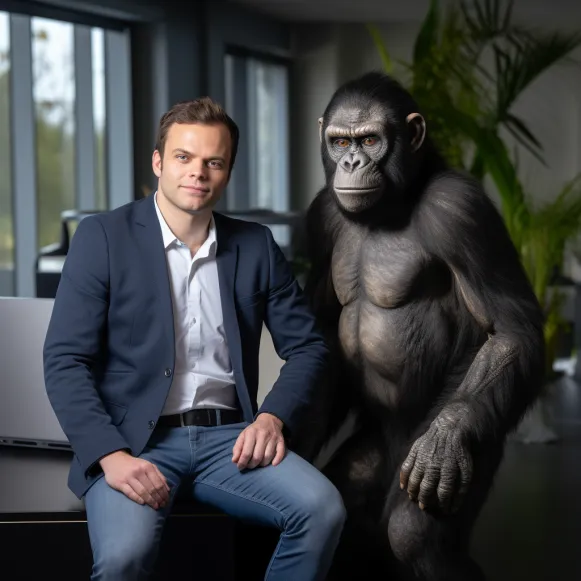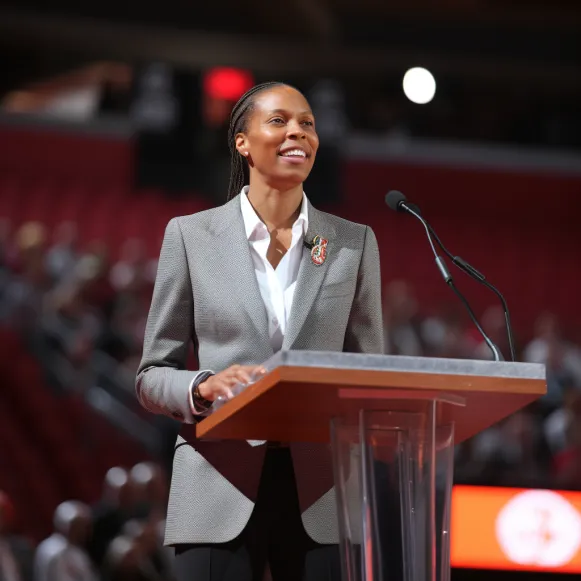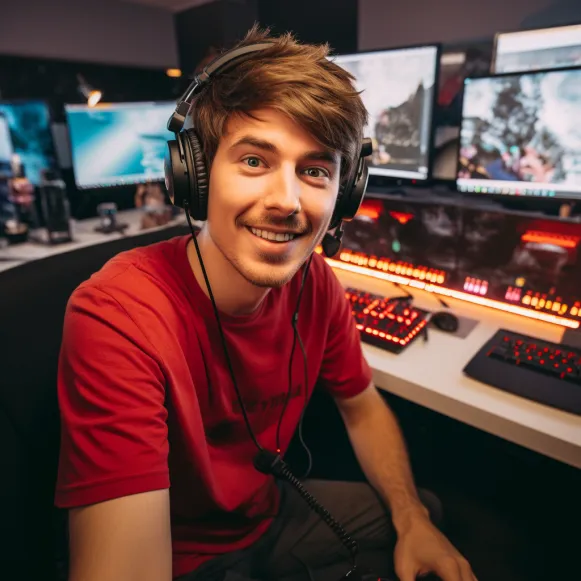‘The gorilla is gone for the moment’: OpenAI’s rivals see ways to profit from a Silicon Valley drama

- The resignation of Sam Altman has created an unexpected opportunity for OpenAI’s competitors.
- During the ongoing crisis, competing startups will try to poach employees from ChatGPT’s parent company.
- “I think it opens the doors as it unseats today’s winner,” said Nathan Benaich of Air Street Capital.0
The ouster of Sam Altman, which threw OpenAI into disarray and enraged the majority of its employees, has presented an unexpected opportunity to the ChatGPT parent’s main competitors.
“I think it opens the doors as it unseats today’s winner,” said Nathan Benaich, general partner at AI investor Air Street Capital. “The gorilla is gone for the moment.”
The fallout will be welcome news to competing startups in the United States such as Anthropic, Cohere, and Hugging Face, which compete with OpenAI’s development of foundational models and open-source research. Similarly, in Europe, contenders such as Mistral and Aleph Alpha, both of which are developing their own foundational models, will benefit from the crisis.
According to investors and founders, Altman’s dismissal makes OpenAI’s disgruntled talent a target for competitors, while also emboldening venture capitalists to back rivals to a company that seemed unstoppable less than a week ago.
Customers of OpenAI are already considering switching to Anthropic, Microsoft, and Google, according to The Information.
An in-demand talent pool
“Many previously poorly understood secrets will be more widely disseminated across the ecosystem,” said an anonymous European AI founder.
The majority of those secrets are likely to end up at Microsoft, as many of OpenAI’s employees, 95% of whom have threatened to leave, intend to follow Altman’s lead. Efforts to stem the flow have been made, not least by Salesforce CEO Marc Benioff.
Salesforce will match any OpenAI researcher who has tendered their resignation with a full cash and equity OTE to join our Salesforce Einstein Trusted AI research team led by Silvio Savarese immediately. Please send your resume to ceo@salesforce.com. Einstein is the most famous… pic.twitter.com/1RXoc9ekeoNovember 20, 2023 — Marc Benioff (@Benioff)
If employees do not choose to join Microsoft or remain at OpenAI, “other big labs will soak them up,” according to Benaich. Nonetheless, European competitors such as Mistral or Aleph Alpha may find it difficult to hire US-based talent, owing to distance and remuneration, he added.
However, European competitors can still benefit from OpenAI’s demise. According to EarlyBird VC partner and Aleph Alpha investor Andre Retterath, the startup has been on an unbroken streak for the past year. Recent events have not only distracted the company, but have also potentially harmed its key talent base, which will likely go on to “create new companies or join competitors,” according to Retterath.
Mariam Pettit, a Global Founders Capital partner, agreed, claiming that the caliber of OpenAI’s engineers, developers, and business executives meant that the formation of an OpenAI mafia was likely.
The turmoil at OpenAI has also galvanized European AI founders and investors.
“The European founders I know are more confident in themselves after seeing what seems like a complete mess up from OpenAI, so they’re more willing to think at a bigger scale which then means more serious competition,” the man who founded the company said.
“Investors I know are more eager to invest now that they don’t feel like they’ve missed the train.” “Previously, OpenAI appeared invincible, but now that they aren’t, it’s easier to see how other companies could catch up.”
Business model limitations
OpenAI began as a non-profit organization before shifting to a “capped profit” model in 2019. Investors are skeptical of its unusual corporate structure’s long-term viability.
“There’s a reason you don’t stray from industry standard,” Andrew Scott, a partner at venture capital firm 7percent, told BI. “Nonprofits simply cannot ever work; history has proven the for-profit corporation as the only way to align the whole team toward a common goal.”
According to Albion VC partner David Grimm, the destabilization of OpenAI could mean that its non-profit model, which was put in place to ensure humanity’s safety throughout the development of AI, will be diluted.
“This won’t slow down OpenAI but it could open up more space and opportunities for other startups to look at AI safety,” he said.
It’s a risky business model for a startup like OpenAI, especially since the development of GPT-3.
Aside from employee salaries, the company’s biggest expense, according to a European venture capitalist, is manually cleaning and sourcing the data used to train its models.
“Imagine like the world’s most advanced tech company is still spending the second highest costs on something to do with manual data tearing and integration and verification,” they went on to say.
Competitors such as Cohere, Google Cloud, and Anthropic hope to capitalize on the crisis by luring corporate clients away from OpenAI.
“The old mantra of’move fast and break things’ has much higher stakes in the world of AI,” said Rebecca Gorman, founder of AI safety startup Aligned AI.
“And enterprise clients are looking for technology they can rely on and trust.”






